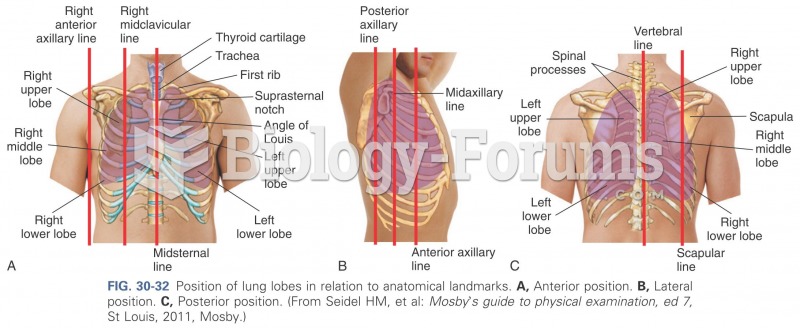|
|
|
A strange skin disease referred to as Morgellons has occurred in the southern United States and in California. Symptoms include slowly healing sores, joint pain, persistent fatigue, and a sensation of things crawling through the skin. Another symptom is strange-looking, threadlike extrusions coming out of the skin.
Automated pill dispensing systems have alarms to alert patients when the correct dosing time has arrived. Most systems work with many varieties of medications, so patients who are taking a variety of drugs can still be in control of their dose regimen.
More than 30% of American adults, and about 12% of children utilize health care approaches that were developed outside of conventional medicine.
Egg cells are about the size of a grain of sand. They are formed inside of a female's ovaries before she is even born.
The human body produces and destroys 15 million blood cells every second.







